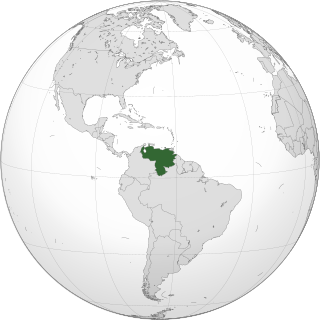
Lesbian, gay, bisexual, and transgender (LGBT) people in Venezuela face legal challenges not experienced by non-LGBTQ residents. Both male and female types of same-sex sexual activity are legal in Venezuela, but same-sex couples and households headed by same-sex couples are not eligible for the same legal protections available to opposite-sex married couples. Also, same-sex marriage and de facto unions are constitutionally banned since 1999.

New Zealand lesbian, gay, bisexual, and transgender (LGBT) rights are some of the most extensive in the world. The protection of LGBT rights is advanced, relative to other countries in Oceania, and among the most liberal in the world, with the country being the first in the region to legalise same-sex marriage.

Lesbian, gay, bisexual, and transgender (LGBT) rights in Cyprus have evolved in recent years, but LGBTQ people still face legal challenges not experienced by non-LGBT residents. Both male and female expressions of same-sex sexual activity were decriminalised in 1998, and civil unions which grant several of the rights and benefits of marriage have been legal since December 2015. Conversion therapy was banned in Cyprus in May 2023. However, adoption rights in Cyprus are reserved for heterosexual couples only.

Lesbian, gay, bisexual, and transgender (LGBTQ) people in Japan have fewer legal protections than in most other developed countries, although some developments towards stronger rights have been made in the 2020s. Same-sex sexual activity was criminalised only briefly in Japan's history between 1872 and 1881, after which a localised version of the Napoleonic Penal Code was adopted with an equal age of consent. Same-sex couples and households headed by same-sex couples are ineligible for the legal protections available to opposite-sex couples, although since 2015 some cities and prefectures, covering over 60% of the population by 2023, offer "partnership certificates" to recognise the relationships of same-sex couples and provide some legal benefits. Japan is the only country in the G7 that does not legally recognize same-sex unions nationally in any form. In March 2021 and May 2023, the Sapporo and Nagoya District Courts ruled that not recognising same-sex marriage was a violation of the Constitution respectively. While in June 2022, the Osaka District Court ruled that not recognising same-sex marriage was not a violation of the Constitution, in November 2022, the Tokyo District Court ruled that the absence of same-sex marriage legislation was an unconstitutional state of affairs but did not violate the Constitution, though the court's ruling has no immediate legal effect. In June 2023, the Fukuoka District Court ruled that the ban on same-sex marriage was constitutional. A second ruling in September 2023 concluded that same-sex relationships should not be excluded from Japan's marriage system.

Lesbian, gay, bisexual and transgender (LGBT) individuals in the Republic of the Philippines have faced many difficulties in their homeland, such as prejudice, violence, abuse, assault, harassment and other forms of anti-LGBT rhetoric. Many LGBT Filipinos are met with mixed attitudes and reactions by their families, friends and others in their communities, as well as professionals, educators, their national public officials, politicians, attorneys and others working for the government and the rest of the general population.

Lesbian, gay, bisexual, and transgender (LGBT) rights in Andorra have advanced significantly in the 21st century, and are now considered generally progressive. Civil unions, which grant all the benefits of marriage, have been recognized since 2014, and discrimination on the basis of sexual orientation is constitutionally banned. The General Council passed a bill on 21 July 2022 that would legalize same-sex marriage in 2023, and convert all civil unions into civil marriage. In September 2023, Xavier Espot Zamora, the Prime Minister of Andorra, officially came out as homosexual.

Lesbian, gay, bisexual, and transgender (LGBT) people in Azerbaijan face significant challenges not experienced by non-LGBTQ residents. Same-sex sexual activity has been legal in Azerbaijan since 1 September 2000. Nonetheless, discrimination on the basis of sexual orientation and gender identity are not banned in the country and same-sex marriage is not recognized.
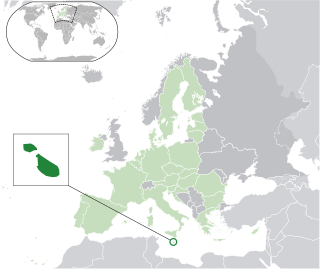
Lesbian, gay, bisexual, and transgender (LGBT) rights in Malta rank among the highest in the world. Throughout the late 20th and early 21st centuries, the rights of the LGBTQ community received more awareness and same-sex sexual activity was legalized on 29 January 1973. The prohibition was already dormant by the 1890s.

Lesbian, gay, bisexual, and transgender (LGBT) rights in Switzerland are some of the most progressive by world standards. Social attitudes and the legal situation have liberalised at an increasing pace since the 1940s, in parallel to the situation in Europe and the Western world more generally. Legislation providing for same-sex marriage, same-sex adoption, and IVF access was accepted by 64% of voters in a referendum on 26 September 2021, and entered into force on 1 July 2022.
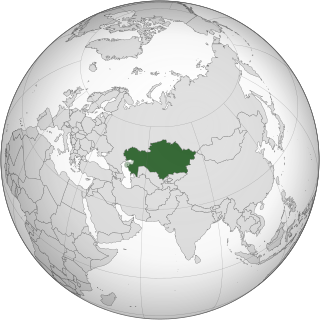
Lesbian, gay, bisexual, and transgender (LGBT) people in Kazakhstan face significant challenges not experienced by non-LGBTQ residents. Both male and female kinds of same-sex sexual activity are legal in Kazakhstan, but same-sex couples and households headed by same-sex couples are not eligible for the same legal protections available to opposite-sex married couples.

Lesbian, gay, bisexual, and transgender (LGBT) rights in Uruguay rank among the highest in the world. Same-sex sexual activity has been legal with an equal age of consent since 1934. Anti-discrimination laws protecting LGBT people have been in place since 2004. Civil unions for same-sex couples have been allowed since 2008 and same-sex marriages since 2013, in accordance with the nation's same-sex marriage law passed in early 2013. Additionally, same-sex couples have been allowed to jointly adopt since 2009 and gays, lesbians and bisexuals are allowed to serve openly in the military. Finally, in 2018, a new law guaranteed the human rights of the trans population.
This is a list of notable events in the history of LGBT rights that took place in the year 2007.
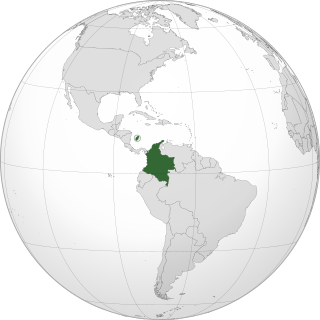
Lesbian, gay, bisexual, and transgender (LGBT) rights in Colombia have advanced significantly in the 21st century, and are now quite progressive. Consensual same-sex sexual activity in Colombia was decriminalized in 1981. Between February 2007 and April 2008, three rulings of the Constitutional Court granted registered same-sex couples the same pension, social security and property rights as registered heterosexual couples.

Lesbian, gay, bisexual, and transgender (LGBT) people in Rwanda face legal challenges not experienced by non-LGBT residents. While neither homosexuality nor homosexual acts are illegal, homosexuality is considered a taboo topic, and there is no significant public discussion of this issue in any region of the country and LGBT people still face stigmatization among the broader population. No anti-discrimination laws are afforded to LGBT citizens, and same-sex marriages are not recognized by the state, as the Constitution of Rwanda provides that "[o]nly civil monogamous marriage between a man and a woman is recognized". LGBT Rwandans have reported being harassed, blackmailed, and even arrested by the police under various laws dealing with public order and morality.

Lesbian, gay, bisexual, transgender, intersex, non-binary and otherwise queer, non-cisgender, non-heterosexual citizens of El Salvador face considerable legal and social challenges not experienced by fellow heterosexual, cisgender Salvadorans. While same-sex sexual activity between all genders is legal in the country, same-sex marriage is not recognized; thus, same-sex couples—and households headed by same-sex couples—are not eligible for the same legal benefits provided to heterosexual married couples.
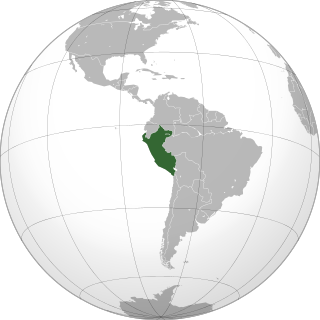
Lesbian, gay, bisexual, and transgender (LGBT) people in Peru face some legal challenges not experienced by other residents. Same-sex sexual activity among consenting adults is legal. However, households headed by same-sex couples are not eligible for the same legal protections available to opposite-sex couples.

Lesbian, gay, bisexual, and transgender (LGBT) rights in Bolivia have expanded significantly in the 21st century. Both male and female same-sex sexual activity and same-sex civil unions are legal in Bolivia. The Bolivian Constitution bans discrimination on the basis of sexual orientation and gender identity. In 2016, Bolivia passed a comprehensive gender identity law, seen as one of the most progressive laws relating to transgender people in the world.

Lesbian, gay, bisexual, and transgender (LGBT) people in Guatemala face legal challenges not experienced by non-LGBTQ residents. Both male and female forms of same-sex sexual activity are legal in Guatemala.

Lesbian, gay, bisexual, transgender, and queer (LGBTQ) people in the U.S. state of Georgia enjoy most of the same rights as non-LGBTQ people. LGBTQ rights in the state have been a recent occurrence, with most improvements occurring from the 2010s onward. Same-sex sexual activity has been legal since 1998, although the state legislature has not repealed its sodomy law. Same-sex marriage has been legal in the state since 2015, in accordance with Obergefell v. Hodges. In addition, the state's largest city Atlanta, has a vibrant LGBTQ community and holds the biggest Pride parade in the Southeast. The state's hate crime laws, effective since June 26, 2020, explicitly include sexual orientation.

In the U.S. Virgin Islands, Lesbian, gay, bisexual, and transgender (LGBT) rights have evolved substantially in recent years. Same-sex sexual activity has been legal since 1985. The region also provides explicit legal protections against discrimination for LGBTQ residents since December 2022. Following the Supreme Court's ruling in Obergefell v. Hodges on June 26, 2015, which found the denial of marriage rights to same-sex couples unconstitutional, same-sex marriage became legal in the islands.





















